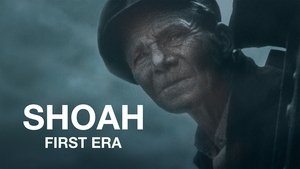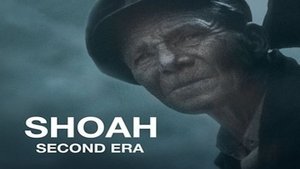
Shoah (1985)
Director Claude Lanzmann spent 11 years on this sprawling documentary about the Holocaust, conducting his own interviews and refusing to use a single frame of archival footage. This epic documentary changed the way we think about the Holocaust. Featuring interviews with survivors, bystanders, and perpetrators from across Europe, mostly Poland and Germany, Shoah is drawn from over 300 hours of contemporary conversations with these witnesses, along with footage of overgrown sites of unspeakable horrors, including the concentration camp at Auschwitz. The monumental film grew out of Lanzmann's concern that the genocide perpetrated only 40 years earlier was already being forgotten. In response, he relied entirely on accounts from witnesses, rather than historical footage or reenactments, sometimes resorting to hidden cameras or other deceptions to coax stories and memories from those with whom he spoke.
-

Episode 1 - First Era
Release Date: 1985-04-24Claude Lanzmann's epic documentary recounts the story of the Holocaust through interviews with witnesses: perpetrators, as well as survivors. The "First Era" covers memories of the time period from roughly the winter of 1941 to the winter of 1942, as death camps were constructed and Jews were deported to those camps from Poland, Croatia, Belgium, France, and the Netherlands. At the early camps, including Chelmo, where gas was first used for the killing, the mechanisms of extermination were relatively primitive and inefficient. Among those Lanzmann interviews is Simon Srebnik, who miraculous survived Chelmo, and an engineer who drove a death train to the camp at Treblinka.
-

Episode 2 - Second Era
Release Date: 1985-04-24Claude Lanzmann's epic documentary recounts the story of the Holocaust through interviews with witnesses: perpetrators, as well as survivors. The "Second Era" chronicles memories of the changing horrors at the death camps in later 1942 and 1943, as precise, efficient methods replaced earlier, more piecemeal or primitive efforts. The witnesses Lanzmann interviews also recall the impact of news about the extermination camps reaching people outside of the camps, including those in Jewish ghetto of Warsaw. One of the final interviews is with a survivor of the Warsaw Ghetto Uprising of 1943.